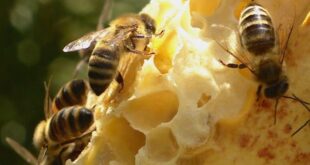Some operators unaware of requirement, which was quietly introduced 2 years ago
In an effort to reduce the spread of marine invasive species, Canada ordered lobster pounds to euthanize all egg-bearing female lobsters. But two years after the measure was introduced, some in the business are still unaware of the requirement.
The Department of Fisheries and Oceans has banned the long-held practice of releasing egg-bearing or "berried" female lobsters when they are discovered in holding facilities.
Instead pounds "must immediately euthanize the lobster," according to licence conditions quietly introduced in January 2022.
"The licence holder/operator is prohibited from releasing any egg-bearing female lobster into any lobster fishing area," the conditions state.
DFO said in a statement the licence conditions "support conservation by reducing the risk of parasites, diseases, invasive species or the introduction of genetic differences in lobster populations.
"Fish, including lobster, should not be returned to the water in cases where it is not possible to determine where the fish originated from," spokesperson Lauren Sankey said.

The statement alludes to a reality in the East Coast lobster business: lobsters caught in one province, and Maine, can be moved and stored — sometimes for weeks or months — in holding facilities in another province.
Still, the requirement came as a surprise to Osborne Burke, president of the Nova Scotia Seafood Alliance and general manager of Victoria Fisheries Co-operative, a shellfish processor that holds about 1.5 million pounds of lobster during the short season in Cape Breton.
He only recently learned about the conditions when they were brought to his attention by another pound operator, and he checked the co-op's 2024 federal licence.
"The procedure's always been to remove the bands and release the lobster," he said. "So it's a bit shocking to see that DFO is directing us to euthanize any egg-bearing females. We're still waiting for clarification from the DFO on the method of euthanization. Do you put it in a pot of boiling water and eat it? I don't think that's what they want."

Linda Campbell, an environmental scientist at Saint Mary's University in Halifax, said controlling the spread of invasive species is never easy.
"The challenge with invasive species is that you do need to prevent the mobility, and doing that is doing surveillance. And you do have to make some tough decisions along the way. And the decision is best made in partnership with different organizations and people who are involved with these actions and those industries," Campbell said.
Burke said that did not happen in this case.
"Where was the consultation? Where was any information in advance? Just change the conditions and send them out," he said.
"In our case, we don't bring lobsters in from other areas."
Stewart Lamont, of Tangier Lobster, agrees the euthanasia requirement for berried lobster is not widely known in the industry.
"This is a wake-up call. There needs to be better communication between DFO and the shore-based processors," he said.
*****
Credit belongs to : www.cbc.ca
 MaharlikaNews | Canada Leading Online Filipino Newspaper Portal The No. 1 most engaged information website for Filipino – Canadian in Canada. MaharlikaNews.com received almost a quarter a million visitors in 2020.
MaharlikaNews | Canada Leading Online Filipino Newspaper Portal The No. 1 most engaged information website for Filipino – Canadian in Canada. MaharlikaNews.com received almost a quarter a million visitors in 2020.







